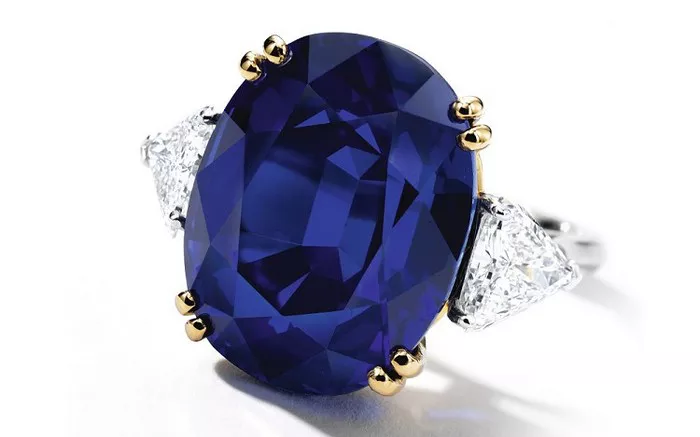Jewelry, as an art form intertwined with culture and tradition, holds immense value both aesthetically and sentimentally. Among the diverse array of jewelry pieces, sapphire tennis bracelets stand out with their unique charm, combining elegance, durability, and a rich history. This article aims to provide a detailed introduction to the unique charm of sapphire tennis bracelets, highlighting their history, design, gemstone qualities, and symbolic meanings.
Historical Background and Design Origins
Tennis Bracelet Origins
The term “tennis bracelet” may seem unusual, but it actually has a fascinating history. The bracelet got its name in the 1970s when Chris Evert, a professional tennis player, lost her bracelet during a match. Her jewelry sponsor, Bulgari, later designed a bracelet with a secure clasp to prevent such mishaps, and the design became known as the “tennis bracelet.” Initially, tennis bracelets featured diamonds, but over time, other gemstones, including sapphires, have been incorporated into this timeless design.
Evolution of Sapphire Tennis Bracelets
As tennis bracelets gained popularity, jewelers began experimenting with different gemstones to create unique variations. Sapphire tennis bracelets emerged as a stunning alternative to diamond tennis bracelets, offering a rich, vibrant color palette that complements various skin tones and outfit choices. The design typically features a row of gemstones, either set closely together or with small metal spacers, creating a seamless, elegant band.
Design and Craftsmanship
Precision Craftsmanship
The appeal of sapphire tennis bracelets lies in their meticulous craftsmanship. Each sapphire is carefully selected and matched for color, clarity, and cut to ensure a cohesive, balanced look. The gemstones are then set into the bracelet using techniques such as prong setting, channel setting, or pave setting. Prong settings highlight each gemstone individually, while channel and pave settings create a continuous, shimmering row of stones.
Metal Choices
The metal used to craft the bracelet adds another layer of charm. Gold, particularly yellow and white gold, is a popular choice due to its durability and warm aesthetic. Platinum, known for its strength and bright white appearance, is another option for those seeking a modern, sleek look. The choice of metal can also affect the bracelet’s price and overall feel, as different metals have unique properties and densities.
Gemstone Qualities and Varieties
Sapphire Characteristics
Sapphires are a type of corundum, a mineral composed of aluminum oxide. They are renowned for their hardness, durability, and stunning color variety. Blue sapphires are the most recognized, but sapphires can also be found in shades of yellow, green, pink, orange, purple, and even black. The color of a sapphire is determined by trace elements within the mineral, such as iron, titanium, and chromium.
Quality Factors
The quality of a sapphire is evaluated based on factors such as color, clarity, cut, and carat weight. In the context of sapphire tennis bracelets, color is particularly important. Deep, vibrant blues are highly valued, but sapphires with unique or rare colors can also fetch high prices. Clarity refers to the absence of inclusions or flaws within the gemstone, and sapphires with fewer inclusions are generally more valuable. The cut determines how well the light interacts with the gemstone, affecting its brilliance and sparkle.
Symbolic Meanings and Cultural Significance
Symbolism of Sapphires
Sapphires have been revered throughout history for their mystical and symbolic properties. In ancient times, sapphires were believed to protect wearers from harm and bring peace and wisdom. In many cultures, sapphires are associated with royalty and luxury, often worn by high-status individuals to demonstrate their power and wealth. The deep blue color of sapphires is often seen as a symbol of truth, loyalty, and wisdom.
Cultural Significance
In various cultures, sapphires hold unique significance. In India, sapphires are considered sacred and are believed to bring good fortune and prosperity. In the Middle Ages, sapphires were thought to have healing powers, able to alleviate eye problems and other ailments. Today, sapphires remain popular as engagement rings and other significant jewelry pieces, symbolizing eternal love and commitment.
Versatility and Timeless Appeal
Versatility in Styling
Sapphire tennis bracelets offer versatility in styling, making them a versatile accessory for various occasions. They can be dressed up for formal events or worn casually with everyday attire. The rich color of sapphires complements both traditional and modern outfits, making them a go-to choice for those who appreciate timeless elegance.
Timeless Appeal
Unlike trendy fashion items, sapphire tennis bracelets retain their appeal over time. Their classic design and high-quality materials ensure that they remain stylish and valuable for generations. Many people choose to pass down sapphire tennis bracelets as heirlooms, preserving their family history and tradition.
Conclusion
In conclusion, sapphire tennis bracelets offer a unique charm that combines history, design, gemstone qualities, and symbolic meanings. Their evolution from a sports-inspired accessory to a timeless jewelry staple highlights their versatility and appeal. Whether worn as a daily accessory or as a cherished heirloom, sapphire tennis bracelets embody elegance, durability, and a rich cultural heritage.
Related topic:
- Can I Wear Topaz Instead of Yellow Sapphire?
- The Benefits of Wearing Yellow Sapphire and Blue Sapphire Together
- Can I Wear Emerald and Yellow Sapphire Together


